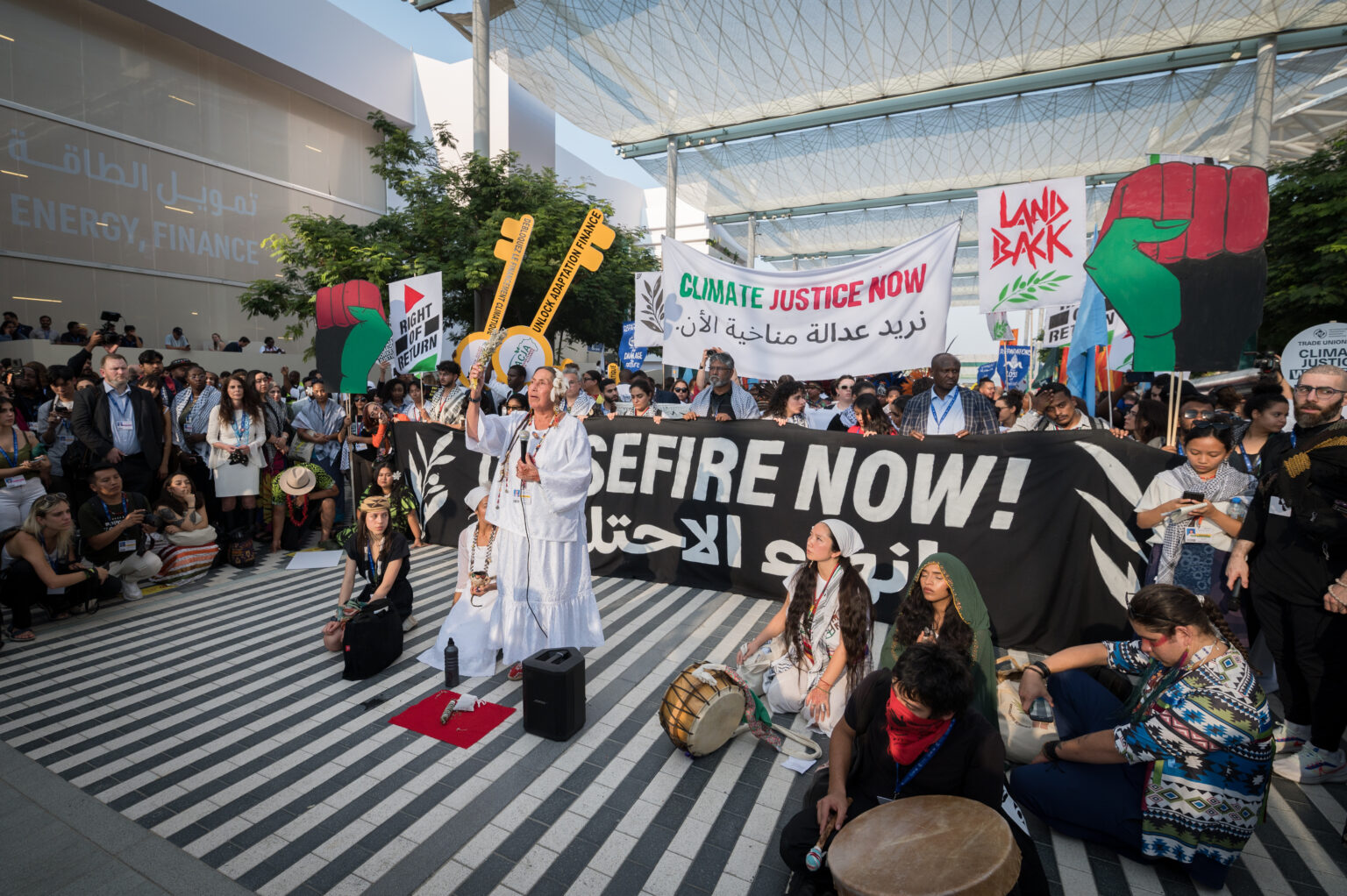The keys to adaptation are part of the COP28 Climate March.
It was expected that COP28 in Dubai would revolve around controversies on loss and damage; instead, it is likely to be remembered as a threshold when the world decided to transition away from fossil fuels. Significant progress was also made on how humankind can adapt to the unfolding climate crisis.
Before Dubai, climate negotiations had failed to define adaptation goals. Having no agreed goal had led to the fragmentation of adaptation activities and funding projects in the Global South. Too many claimed to target adaptation needs which, in reality, had no relevance at all.
Global Goal on Adaptation
As a result, there was significant pressure to define a shared Global Goal on Adaptation (GGA). The work program to define it, launched at Glasgow’s COP26, had reached its end. After parties in the technical negotiations had sabotaged any progress in defining the goal, the political dialogues at COP28 were able to deliver decisions.
The most significant contributions of the GGA are its eight thematic target areas, which range from advancing food security on our warming planet to protecting cultural heritage. Parties also agreed to a cycle for evaluating needs to tailor action and support. This consists of dimensional targets on planning, implementation and monitoring, most to be achieved by 2030.
The framework that will guide action has several principles that are important for ACT Alliance: targeting vulnerable populations such as women and people with disabilities; respecting human rights; and supporting local leadership. It also emphasises nature-based solutions to build resilience, linking climate and biodiversity.
Far from final
The governance framework is far from final. The most obvious omission is the exclusion of defined adaptation indicators. However, a work program has been established to develop science-based metrics. Notably, although action and support are discussed in the framework, no new additional financial commitments were made. On a positive note, a ministerial dialogue was established to develop plans to double adaptation funding. This is needed due to the declining share of adaptation in climate finance – despite a commitment to increase it.
The decisions made at COP28 will need to be translated into national and sub-national policies guiding adaptation action. ACT Alliance members have diverse expertise in building adaptive capacities, decreasing vulnerability and increasing resilience. This is a golden opportunity for members to advocate for establishing or renewing existing national policies to reflect human rights and equity-oriented outcomes in the GGA – and to follow the progress of turning words into action.
Originally from Webpage "actalliance.org"
CCD edited and reprinted with permission












